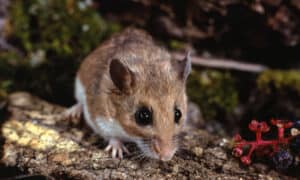Mice are great pets as well as annoying pests. If you’re like most people, though, you don’t see them around your house. Instead, you will find evidence that they have been around. They’ll leave plentiful droppings and shredded items in their wake. So, are mice nocturnal? That’s the question we’re going to explore today. The answer isn’t as straightforward as a yes or no, though.
Let’s explore the issue and determine if mice are nocturnal or not. We’ll also explore the impacts their sleeping habits could have on your lifestyle.
Are Mice Nocturnal?
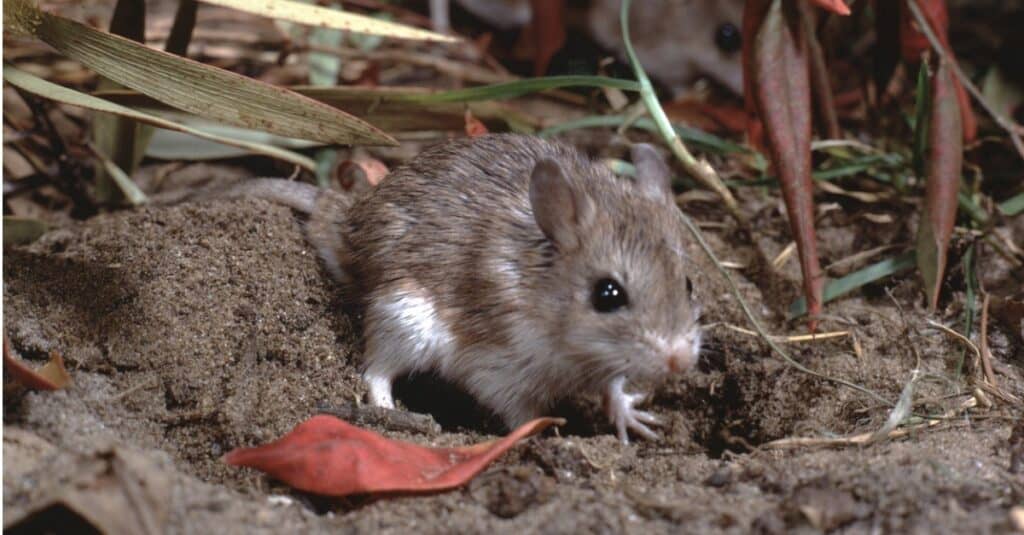
Mice are more active when it’s near dusk or dawn.
©iStock.com/Weber
Mice are crepuscular rodents, but they are primarily nocturnal. That means they prefer to be awake during the hours around dusk and dawn. They do spend some time awake and active during the day. So, mice are not entirely nocturnal, even though they are often considered that sometimes.
Mice don’t want to be active at night because specialized predators like owls and snakes are common after dark. They have the keen senses to spot a mouse moving across a field. They also don’t want to be particularly active during the day when other predators can get to them.
During the relatively few hours that the animals spend awake, they need to find food and get necessities for their nests. Mice have poor vision, so they are easily stalked and killed when they are out in the open during the day. A housecat, bird, or snake can easily make a meal of them.
Fortunately, they have a powerful sense of hearing that allows them to discover danger before it closes in around them. Aside from venturing out during dusk and dawn hours, they try to avoid times when other creatures are awake, including humans. After all, they’re very low on the food chain.
Thus, the chances are rather small that you’ll see a mouse, but you’ll see signs of them in your home. Also, you’re far more likely to hear a mouse moving around in your walls or ceiling during the nighttime hours. So, if you’re lying in bed and you hear something squeaking or moving in your wall, it could be a mouse.
Are Pet Mice Nocturnal?
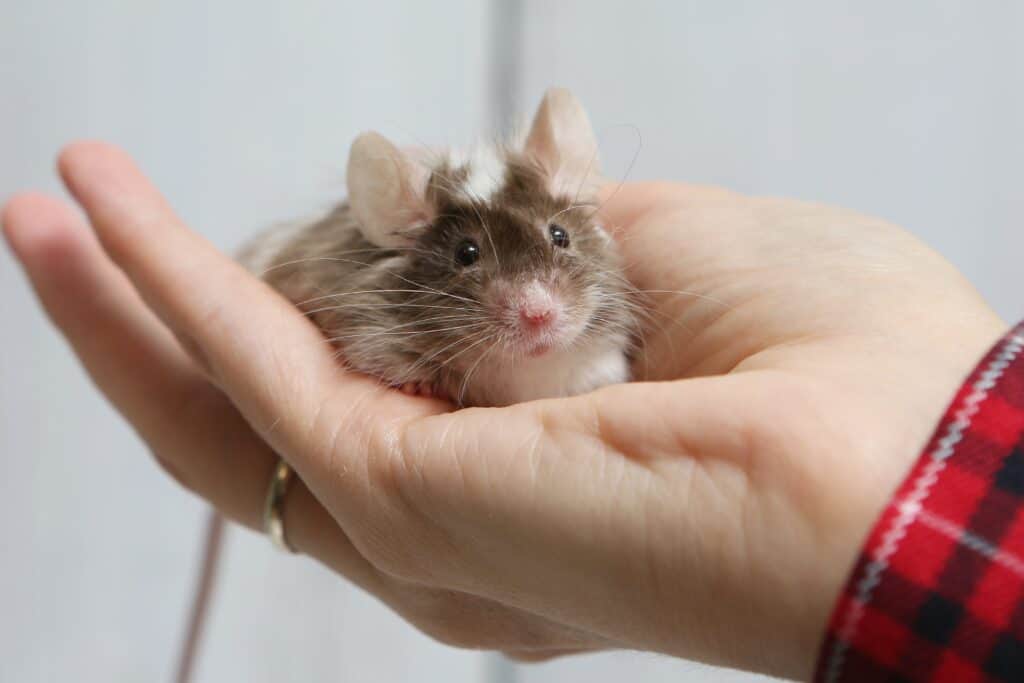
For the most part, pet mice are nocturnal as well.
©Sergey Bezgodov/Shutterstock.com
Pet mice are an interesting case. Pet mice are crepuscular, just like their wild counterparts. However, pet mice can adapt to their owner’s schedule a little bit. They may be awake during the day or near dusk for you to handle them. Yet, the chances are better that they will wake up for a meal and then go back to sleep.
You don’t want to frequently wake them up to play with them or show them off. They have a built-in sleep schedule. If you try to make them stay awake during the daylight hours, you will certainly stress them out. The best bet is to let them sleep.
A downside of having mice as pets is that they can wake up in the early morning hours. When you are trying to sleep, they will be moving around their cage. Although they’re not as noisy as a popcorning guinea pig, their rustling can wake you from an otherwise restful sleep.
Can You Find Mice During the Day?
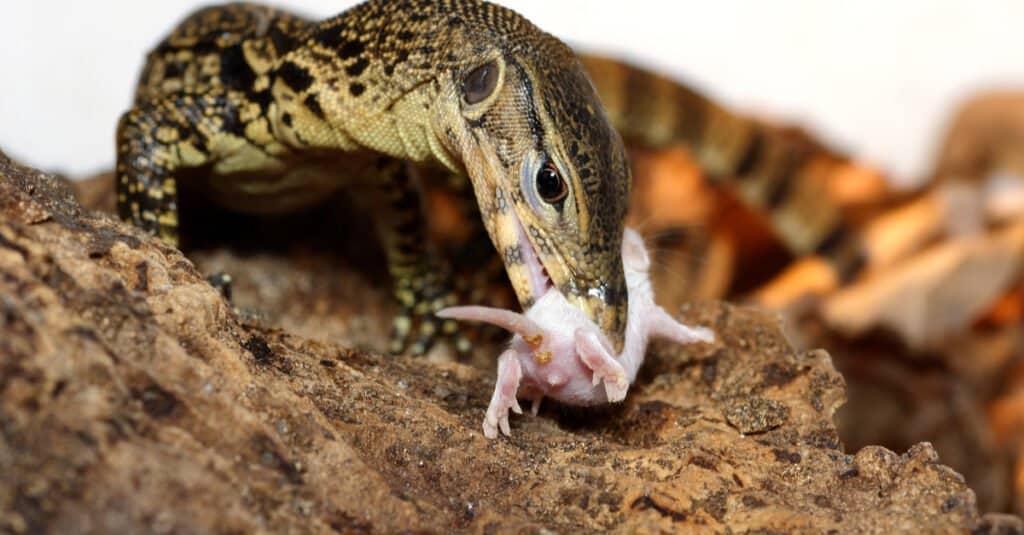
Mice stay hidden during the day to avoid predators.
©Valt Ahyppo/Shutterstock.com
Part of the reason that people ask, “are mice nocturnal?” is that they have seen them during the day. However, you can certainly find mice scurrying around throughout the day.
Several things can make a mouse move about during the day. For example, they may have been spooked by noises or had an encounter with a predator that sent them scurrying. Remember, they can hear very well. If your pet dog has started sniffing around their nest, they’ll abandon it to save themselves.
Although they prefer to stay out of sight throughout the daylight hours, they will risk moving around if something is wrong.
Mice will also leave their home for another important reason: food! If they are hungry, then they may come out during the day and grab a bite to eat. Interestingly, these rodents are more likely to come out when there are greater numbers of them. So, if you have an infestation, you’re more likely to see mice throughout the day.
Still, you’re most likely to see these animals moving around during the dusk and dawn hours along with several hours into the night.
How to Know Where Mice Live
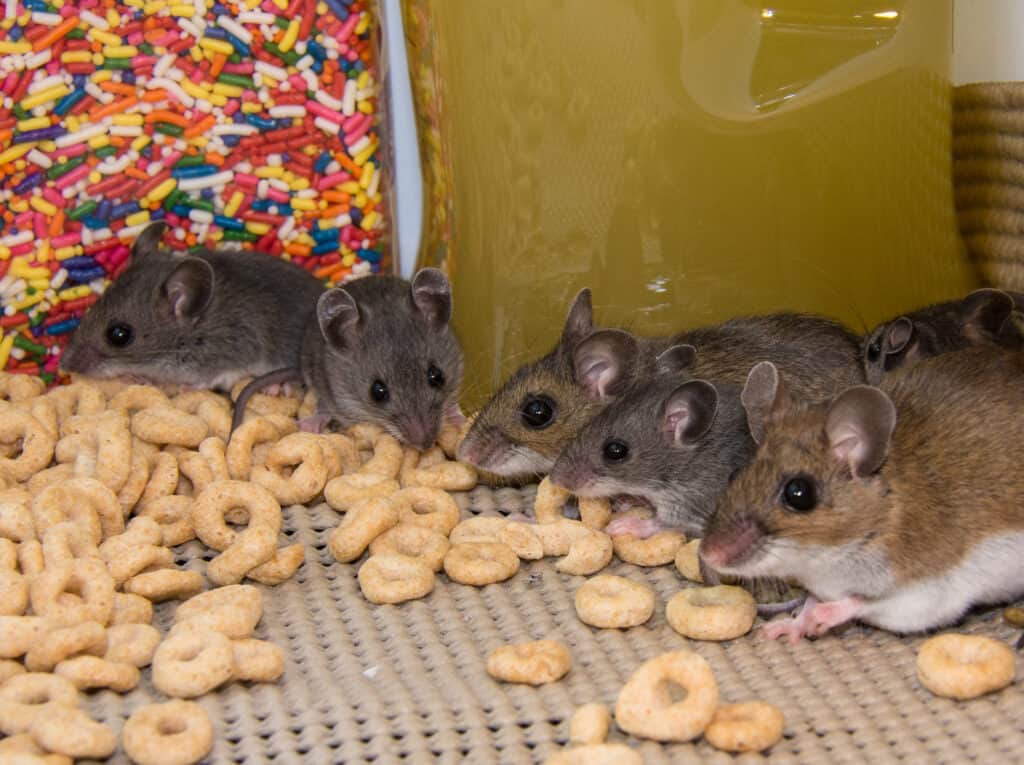
If you have one mouse in your house, you need to eliminate it before it leads to an infestation.
©Landshark1/Shutterstock.com
Mice leave behind a lot of signs that they have infested a home. As we’ve already mentioned, if you hear a lot of squeaking or rustling around in your walls, that’s a clear sign that mice have moved in. Of course, other signs exist, too.
Most of the time, you’ll never see or hear these creatures. Yet, you will see evidence that they are around. For example, a lot of people notice droppings in their kitchen cabinets or less-used places in the home. Several differences exist between rat poop, mouse poop, and other rodents’ leavings. If you do find droppings, you must be careful about cleaning them up to prevent illness.
Generally, you’ll find droppings in areas where the animals are nesting or where they have stopped to eat.
Other signs that mice have come into your home include nests of fluffy, light material. Mice will chew and scratch apart things like paper towels or collect newspaper bits to make a nest. You can also look for damages in your home. Chewed wires or damaged food boxes are common sights in infested homes.
Once you have identified an infestation, you can take steps to end it. If you have a few mice, then you can trap and rehome them. It might be a good idea to invest in barrier methods like spraying peppermint oil around your home.
If things have gone too far, you need to consider more drastic measures. Poisons and fatal traps are two methods to use when you have a large infestation. Although you may not want to hurt these creatures, mice reproduce very quickly. If you don’t nip the infestation in the bud, you may have generations of mice wreaking havoc on your house.
The photo featured at the top of this post is © MainelyPhotos/Shutterstock.com
Thank you for reading! Have some feedback for us? Contact the AZ Animals editorial team.






